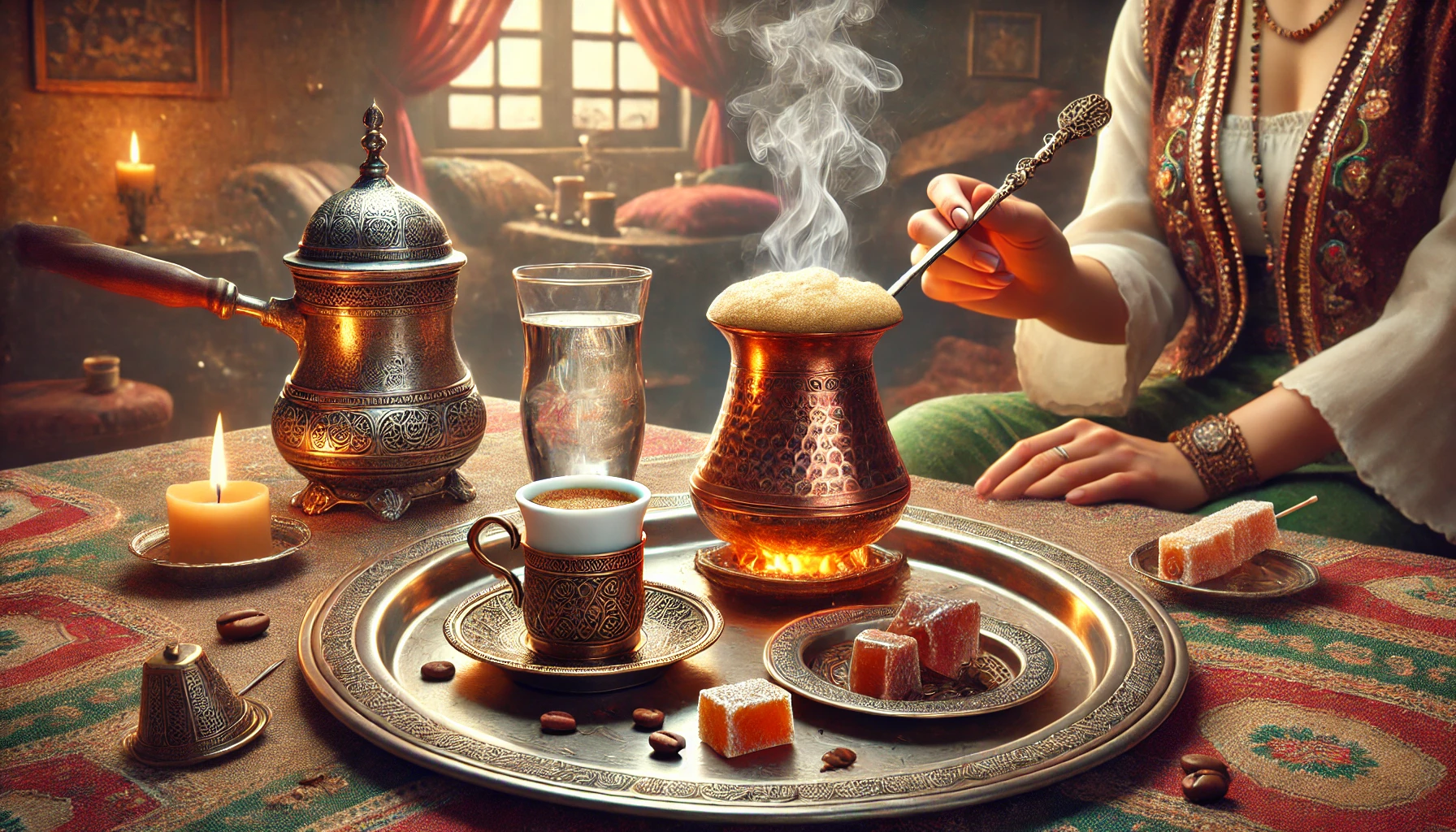Turkish coffee is more than a way to brew—it’s a cultural tradition, an intangible heritage, and a symbol of hospitality that has endured for centuries. Recognized by UNESCO as part of the world’s intangible cultural heritage, Turkish coffee brings people together with its rich flavor, ceremonial preparation, and deep-rooted social meaning.
In this article, we’ll explore the history, preparation, and cultural significance of Turkish coffee—and why this unfiltered, bold brew continues to captivate people around the world.
A Brief History of Turkish Coffee
Coffee arrived in the Ottoman Empire in the mid-16th century, likely brought from Yemen. The Ottomans quickly embraced it, developing their own unique preparation method that would become known as Turkish coffee.
Key milestones:
- The first coffeehouses (kahvehane) opened in Istanbul in the 1550s
- Coffee became deeply integrated into Ottoman court life and daily culture
- Turkish coffee influenced brewing traditions across the Middle East, Balkans, and North Africa
Over time, Turkish coffee spread far beyond Turkey’s borders, shaping coffee cultures from Greece to Egypt to Armenia.
What Is Turkish Coffee?
Turkish coffee is a finely ground, unfiltered coffee brewed slowly in a small copper or brass pot called a cezve (jezz-veh). It’s typically strong, slightly sweet, and intensely aromatic—with a layer of foam on top and a dense layer of grounds at the bottom of the cup.
Core characteristics:
- Very fine grind (powder-like)
- Brewed with water and sugar (optional)
- Not filtered—grounds settle at the bottom
- Served in small cups similar to espresso demitasses
- Sometimes flavored with cardamom or spices
How to Make Turkish Coffee
What You’ll Need:
- Cezve (traditional Turkish coffee pot)
- Very finely ground coffee (ideally roasted for Turkish style)
- Cold water
- Sugar (optional)
- Small demitasse cups
- Optional spices: cardamom, cinnamon
Brewing Steps:
- Measure: Use one heaping teaspoon of coffee per cup (about 60ml of water). Add sugar before brewing if desired:
- No sugar = sade
- A little sugar = az şekerli
- Medium = orta
- Sweet = şekerli
- Mix: Add coffee and water (and sugar, if using) to the cezve. Stir thoroughly while the water is still cold.
- Heat slowly over low flame. Don’t stir after heating begins. Watch for foam to form.
- Just before it boils over, remove from heat. Spoon some foam into each cup.
- Return the cezve to heat and allow it to foam up again, then pour the rest evenly into the cups.
- Let it settle, then sip slowly—don’t drink the grounds at the bottom!
Coffee and Conversation: A Cultural Ritual
In Turkish culture, coffee is about connection. It’s served:
- To guests as a sign of hospitality and respect
- At family gatherings and social visits
- During special occasions like engagements (where the bride-to-be may serve it with salt to test the groom’s patience!)
- With a glass of water and Turkish delight to cleanse the palate
The phrase “a cup of coffee commits one to forty years of friendship” (Bir fincan kahvenin kırk yıl hatırı vardır) reflects coffee’s deep social symbolism.
Coffee Fortune Telling (Tasseography)
A beloved part of Turkish coffee culture is reading the grounds left in the cup.
After finishing your coffee:
- Place the saucer over the cup and turn it upside down
- Let it cool
- Interpret the patterns left by the coffee grounds
Shapes are “read” like tea leaves, with symbols representing emotions, events, or possibilities. While playful, it’s taken seriously by many and adds a magical element to the experience.
Turkish Coffee Around the World
Many regions have their own version of Turkish coffee, including:
- Greek coffee (similar but with different cultural roots)
- Arabic coffee (often includes cardamom and is lighter in roast)
- Bosnian and Serbian coffee (slightly different cezve shape and rituals)
Despite variations, they all share the essentials: fine grind, unfiltered brew, slow preparation, and social sharing.
UNESCO Recognition
In 2013, UNESCO added Turkish coffee culture to its Intangible Cultural Heritage list, recognizing its role in:
- Promoting social bonds
- Preserving craftsmanship (e.g. cezve making, roasting techniques)
- Representing identity and tradition
It’s not just a drink—it’s a living cultural expression.
Final Thoughts: Where Ritual Meets Richness
Turkish coffee invites you to slow down, connect, and savor. It’s about more than caffeine—it’s about presence, tradition, and storytelling. Whether you’re enjoying it with friends or gazing into the grounds for insight, Turkish coffee offers an experience as rich and layered as the beverage itself.
So brew slowly, serve with care, and drink in centuries of history—one small, powerful cup at a time.
